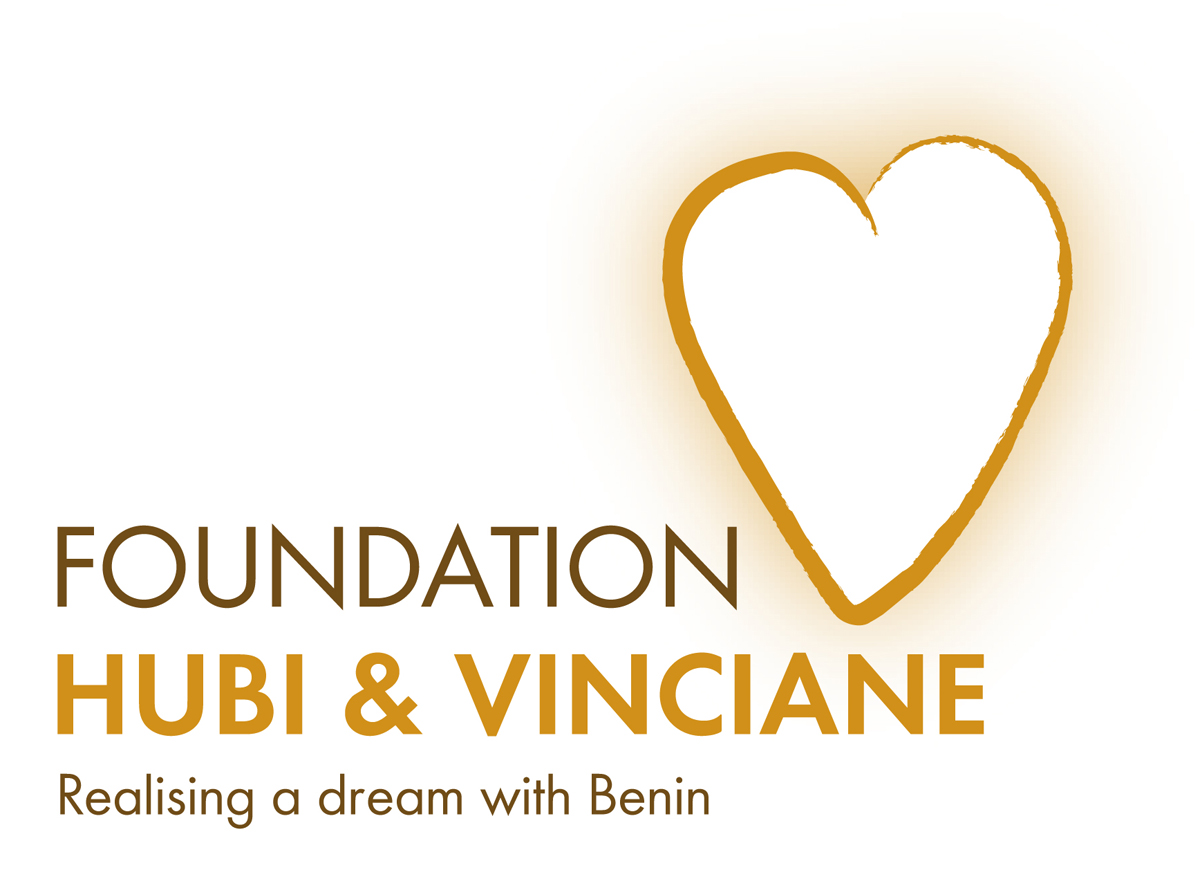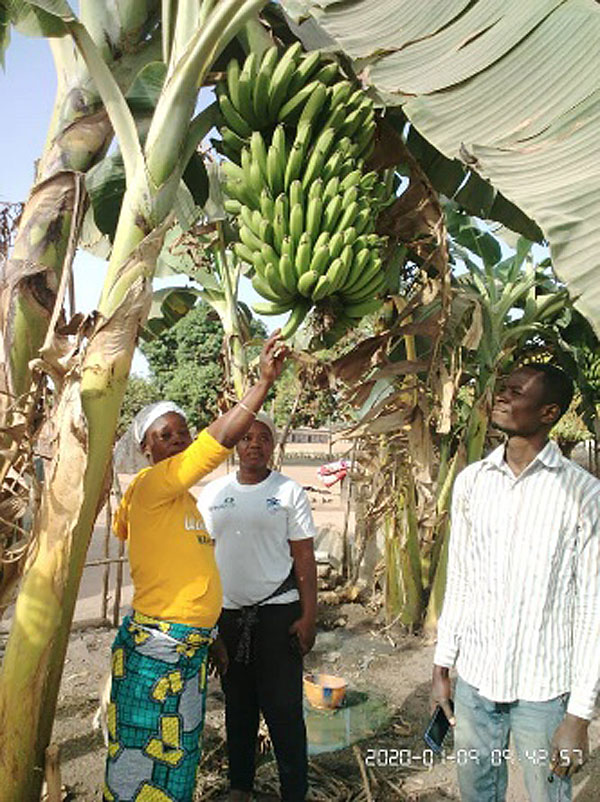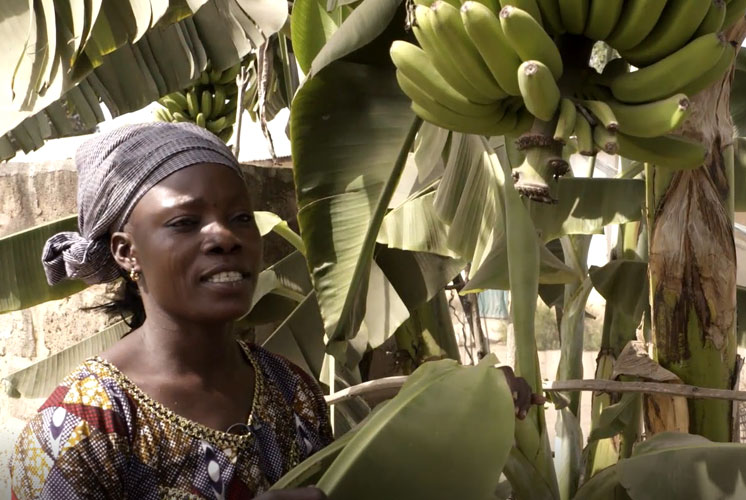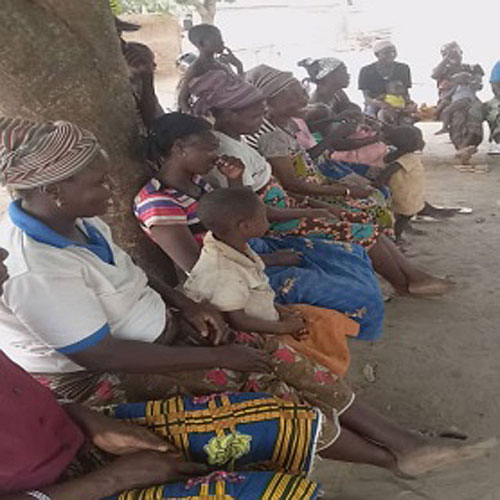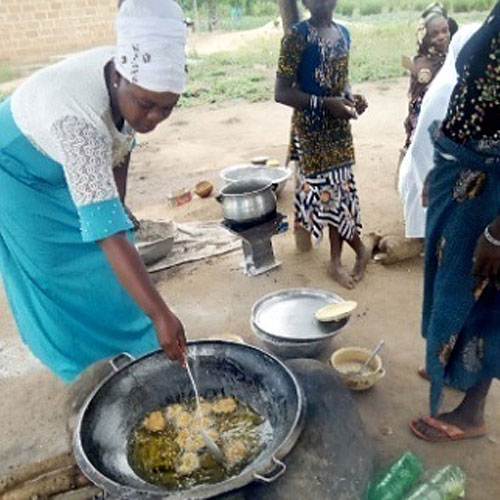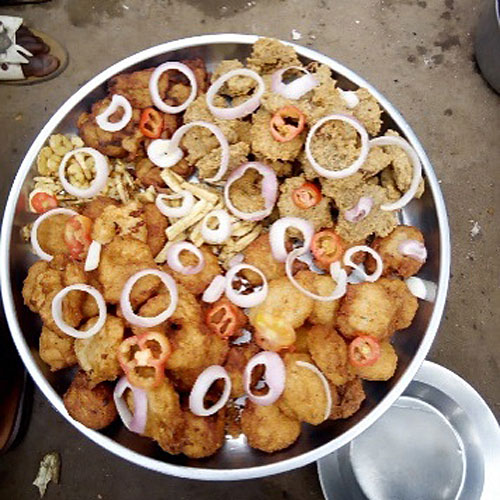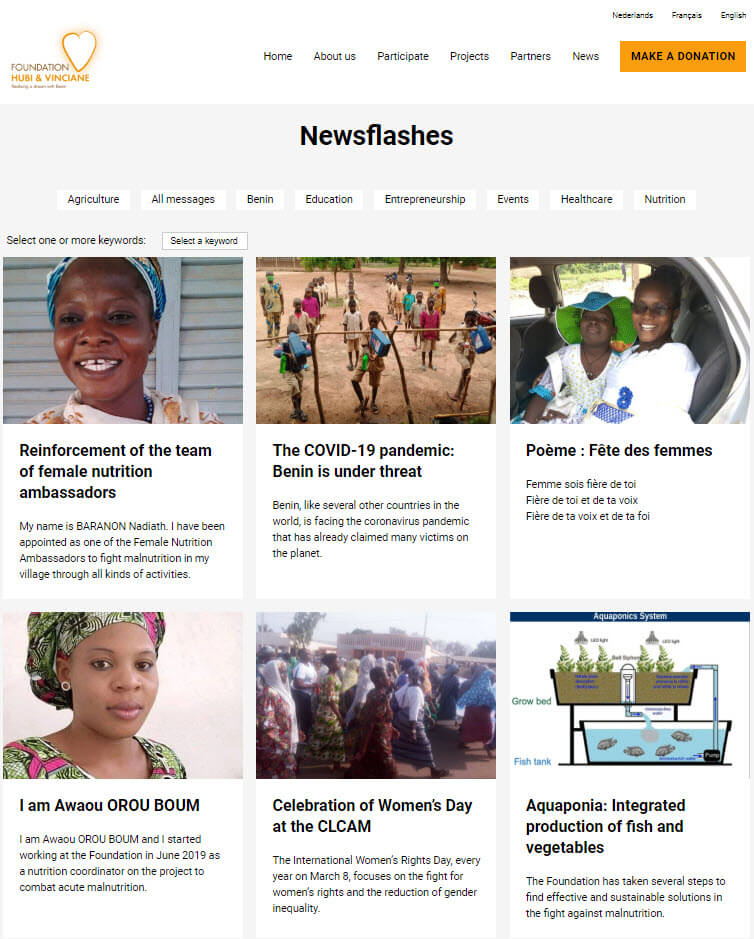A banana tree for every woman in Benin!
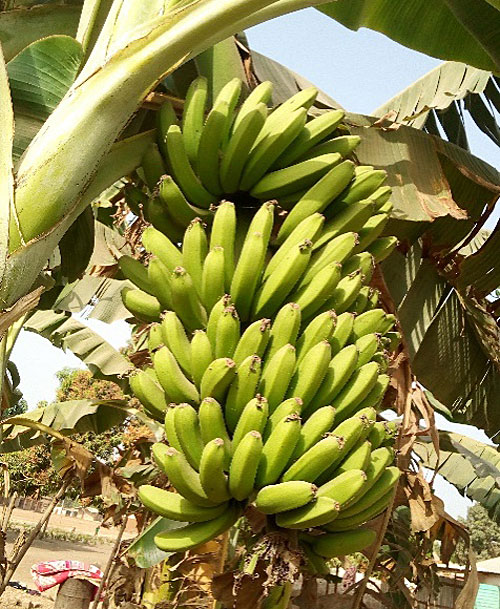
In the autumn of 2017, the Hubi & Vinciane Foundation introduced a programme for growing banana plants in the villages of the Borgou region. The cultivation of bananas is not widespread in this region, mainly because of the long dry season whereas a banana plant needs a lot of water to provide a good harvest. However, bananas are very nutritious, rich in minerals, and can play an essential role in combating malnutrition amongst young children.
In the first year, the Foundation distributed 500 banana shoots to some 200 women in the 24 villages where the Foundation is active with its agricultural programme. The banana trees were planted close to the homes to make maximum use of domestic wastewater. The women were also intensively supervised by our agricultural consultants. We taught them how to care for the banana plants in to achieve maximum yield. The dropout in this first year was low, and after about ten months, a total of 9,000 kg of bananas were harvested.
Due to the great success in the first year and partly thanks to the advice following a working visit by Prof. Dr. Ir. Rony Swennen, a specialist in banana growing at the KU Leuven, the project seriously expanded in the second and third year, during which respectively 8,000 and 12,000 banana plants were distributed. In the third year, the distribution was extended from 24 villages to 69 villages. The additional villages are located in the municipality of N’Dali, where mid-2019, the Foundation started a systematic screening of malnourished children in 47 villages. By doing so, we link curative actions (screening and treatment of malnourished children) to preventive actions (better quality nutrition).
During this period of three years, the total harvest of bananas amounts to 590,000 kg, with a total market value of around 225,000 euros. We can already see that the production and distribution of new banana shoots (purchase price is about 1 euro) are done through the participating women of the first and second year of work. Due to the great success, there are more and more women in the villages who want a banana plant. Therefore, it is good to know that the distribution will be possible in the future without significant logistical support from the Foundation. The most enterprising women are also expanding their own plantations – as long as enough water is available – and can thus offer bananas for sale at local markets.
In addition to assisting in the cultivation of bananas, the Foundation has also provided training on how to process the banana harvest into finished products that can be sold on local markets with added value. These include products such as banana fritters (Talé Talé), banana chips, banana flour (can be stored very well and for a long time) and yam fritters of banana enriched with fishmeal. About 150 village representatives received a two-day training at the Foundation’s “Centre d’InnovAction” in Parakou, with cooking demonstrations and explanations about the nutritional value of bananas and healthy and balanced nutrition. These participants, in turn, provided training and demonstrations in the 69 villages, reaching more than 3,000 women.
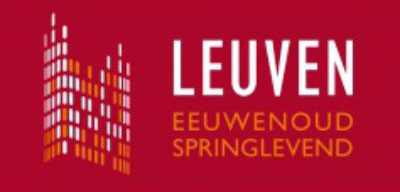
This project has undoubtedly been a great success. It was made possible thanks, among other things, to the financial support from the City of Leuven, which has called for a project grant of 72,000 euros spread over three years of operation.
